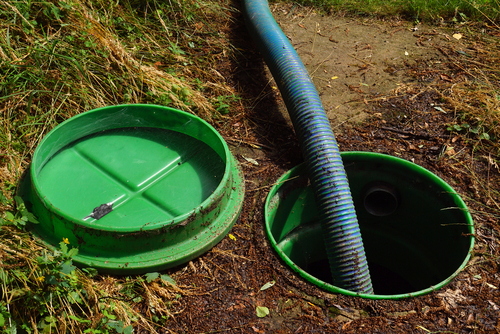How Often Should You Pump Your Septic Pump At Home?
May 27, 2024 8:15 pm Leave your thoughtsMaintaining a healthy and properly functioning septic system is essential for the smooth operation of your home’s wastewater treatment process. One critical component of septic system maintenance is regular residential septic pumping. In this blog post, we will discuss how often you should pump your septic tank at home, the importance of residential septic pumping, and the factors that can influence the frequency of pumping.
Understanding Residential Septic Pumping
Residential septic pumping is the process of removing accumulated solids, sludge, and scum from the septic tank to prevent issues such as clogging, overflow, and system failure. Over time, solid waste and debris can build up in the septic tank, reducing its capacity and hindering the treatment of wastewater. By regularly pumping the septic tank, you can maintain its efficiency, prevent backups, and extend the lifespan of the entire septic system.
Factors Influencing Pumping Frequency
The frequency at which you should pump your septic tank at home can vary depending on several factors. The size of your household, the amount of wastewater generated, and the volume of solids entering the septic tank all play a role in determining how often pumping is necessary. Generally, it is recommended to pump a residential septic tank every 3 to 5 years to ensure optimal performance and to prevent potential issues.
Moreover, the type of waste that enters the septic system can also impact the pumping frequency. Household habits such as excessive water usage, the disposal of non-biodegradable items, and the use of harsh chemicals can lead to faster accumulation of solid waste in the septic tank. By practicing water conservation, proper waste disposal, and septic-safe cleaning products, you can help reduce the frequency of pumping and maintain a healthier septic system.
Signs That Your Septic Tank Needs Pumping
In addition to following a regular pumping schedule, it is essential to watch for signs that indicate your septic tank may be due for pumping. If you notice slow drains, gurgling noises, foul odors, or standing water around the drain field, these could be indications that your septic tank is nearing capacity and requires pumping. Ignoring these signs can lead to costly repairs, system malfunctions, and potential health hazards, underscoring the importance of timely residential septic pumping.
Benefits of Regular Septic Pumping
There are numerous benefits to adhering to a regular residential septic pumping schedule. First and foremost, routine pumping helps prevent system failures, backups, and costly repairs that can result from neglecting septic tank maintenance. By removing solid waste and debris on a regular basis, you can keep your septic system functioning efficiently and prolong its lifespan. Additionally, regular pumping can improve the quality of effluent discharged into the environment, reducing the risk of contamination and protecting groundwater and surface water sources.
Furthermore, regular septic pumping can save you money in the long run by avoiding emergency repairs and system replacements. By investing in preventative maintenance through residential septic pumping, you can minimize the risk of costly septic system issues and ensure the continued functionality of your wastewater treatment system. Regular pumping is a proactive measure that can help you avoid the inconvenience, expense, and environmental impact of a malfunctioning septic system.
Summary
Residential septic pumping is a crucial aspect of maintaining a healthy and efficient septic system at home. By following a regular pumping schedule, monitoring signs of system overload, and practicing good household habits, you can ensure the longevity and effectiveness of your septic tank. Remember that regular septic pumping is not only beneficial for your septic system’s performance but also for your wallet and the environment. By prioritizing residential septic pumping, you can enjoy peace of mind knowing that your wastewater treatment system is in optimal condition.
Need a Septic Tank & Grease Trap Cleaning Company in Farmington, NH?
B.H. Cameron Septic Services LLC has been proudly serving the surrounding counties since 2005, providing efficient, cost-effective solutions to meet your residential or commercial septic system needs. We will help you develop your initial design and secure permits for installation or provide conversion to the city sewer system. We offer peace of mind with routine maintenance service after the job is done. When you contact B.H. Cameron Septic Services LLC, you will be greeted by one of our customer service staff. An experienced service technician will work directly with you to determine how we can help with your septic service or maintenance. Call us today!
Categorised in: Residential Septic Pumping, Septic Pumping
This post was written by admin

